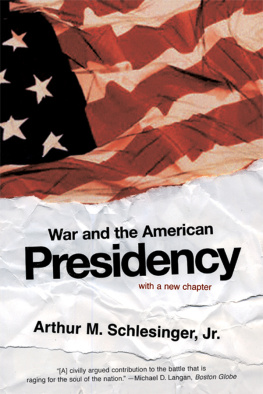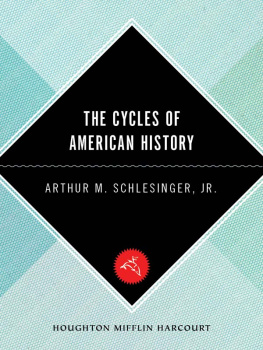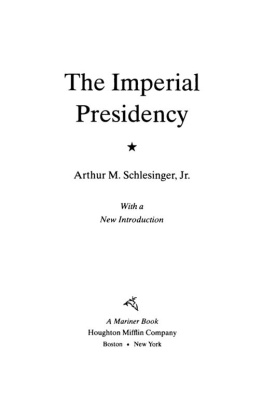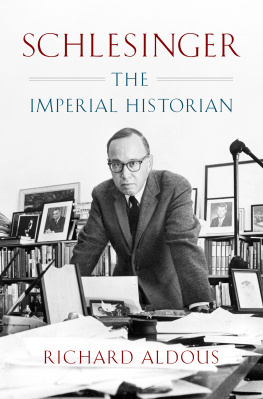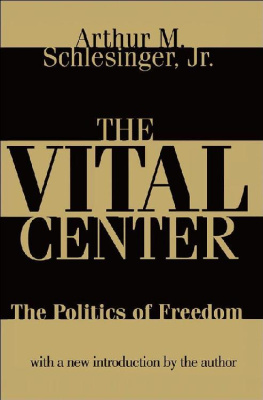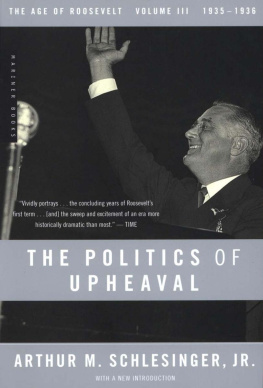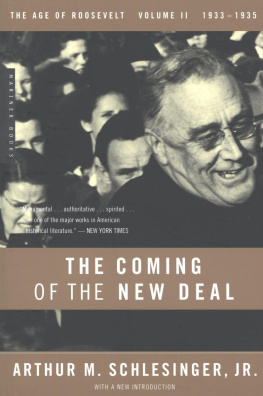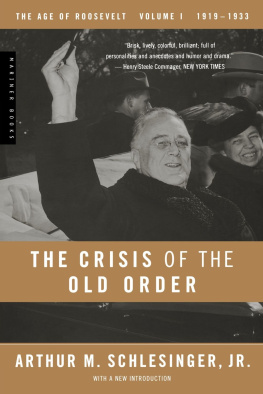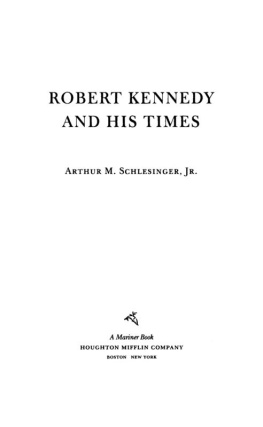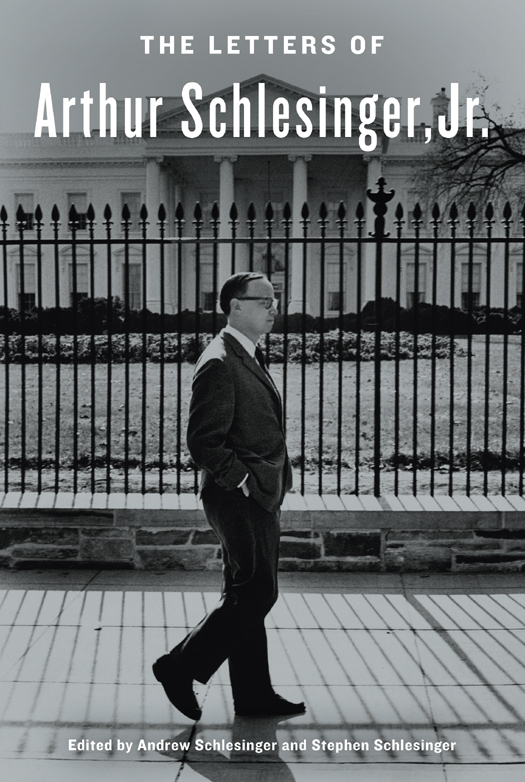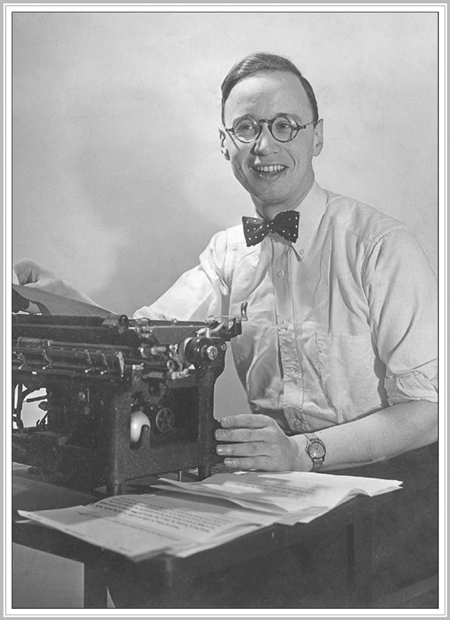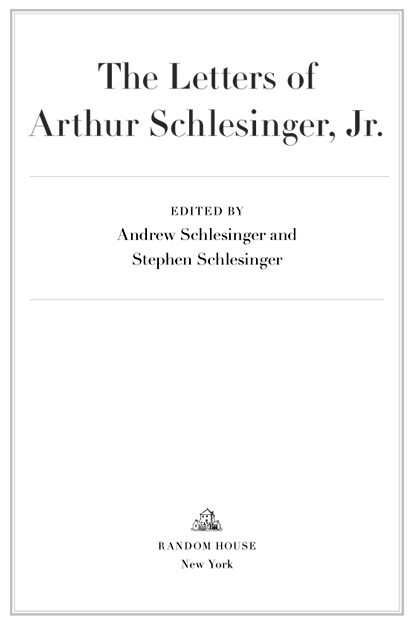Arthur Schlesinger Jr. - The Letters of Arthur Schlesinger, Jr.
Here you can read online Arthur Schlesinger Jr. - The Letters of Arthur Schlesinger, Jr. full text of the book (entire story) in english for free. Download pdf and epub, get meaning, cover and reviews about this ebook. year: 2013, publisher: Random House Publishing Group, genre: Art. Description of the work, (preface) as well as reviews are available. Best literature library LitArk.com created for fans of good reading and offers a wide selection of genres:
Romance novel
Science fiction
Adventure
Detective
Science
History
Home and family
Prose
Art
Politics
Computer
Non-fiction
Religion
Business
Children
Humor
Choose a favorite category and find really read worthwhile books. Enjoy immersion in the world of imagination, feel the emotions of the characters or learn something new for yourself, make an fascinating discovery.

- Book:The Letters of Arthur Schlesinger, Jr.
- Author:
- Publisher:Random House Publishing Group
- Genre:
- Year:2013
- Rating:3 / 5
- Favourites:Add to favourites
- Your mark:
The Letters of Arthur Schlesinger, Jr.: summary, description and annotation
We offer to read an annotation, description, summary or preface (depends on what the author of the book "The Letters of Arthur Schlesinger, Jr." wrote himself). If you haven't found the necessary information about the book — write in the comments, we will try to find it.
An advisor to presidents, two-time Pulitzer Prize winner, and tireless champion of progressive government, Arthur Schlesinger, Jr., was also an inveterate letter writer. Indeed, the term man of letters could easily have been coined for Schlesinger, a faithful and prolific correspondent whose wide range of associates included powerful public officials, notable literary figures, prominent journalists, Hollywood celebrities, and distinguished fellow scholars.
The Letters of Arthur Schlesinger, Jr. reveals the late historians unvarnished views on the great issues and personalities of his time, from the dawn of the Cold War to the aftermath of September 11. Here is Schlesingers correspondence with such icons of American statecraft as Harry Truman, Adlai Stevenson, Hubert Humphrey, Henry Kissinger, Bill Clinton, and, of course, John and Robert Kennedy (including a detailed critique of JFKs manuscript for Profiles in Courage). There are letters to friends and confidants such as Eleanor Roosevelt, John Kenneth Galbraith, Gore Vidal, William Styron, and Jacqueline Kennedy (to whom Schlesinger sends his handwritten condolences in the hours after her husbands assassination), and exchanges with such unlikely pen pals as Groucho Marx, Sammy Davis, Jr., and Bianca Jagger. Finally, there are Schlesingers many thoughtful replies to the inquiries of ordinary citizens, in which he offers his observations on influences, issues of the day, and the craft of writing history.
Written with the range and insight that made Schlesinger an indispensable figure, these letters reflect the evolution of his thoughtand of American liberalismfrom the 1940s to the first decade of the new millennium. Whether he is arguing against the merits of preemptive war, advocating for a more forceful policy on civil rights, or simply explaining his preference in neckwear (For sloppy eaters bow ties are a godsend), Schlesinger reveals himself as a formidable debater and consummate wit who reveled in rhetorical combat. To a detractor who accuses him of being a Communist sympathizer, he writes: If your letter was the product of sincere misunderstanding, the facts I have cited should relieve your mind. If not, I can only commend you to the nearest psychiatrist. Elsewhere, he castigates a future Speaker of the House, John Boehner, for misattributing quotations to Abraham Lincoln.
Combining a political strategists understanding of the present moment with a historians awareness that the eyes of posterity were always watching him, Arthur Schlesinger, Jr., helped shape the course of an era with these letters. This landmark collection frames the remarkable dynamism of the twentieth-century and ensures that Schlesingers legacy will continue to influence this one.
Praise for The Letters of Arthur Schlesinger, Jr.
Schlesingers political intelligence in his correspondence is excellent, the level of discourse and purpose high, the sense of responsibility as keen as the sense of fun. . . . The best lettersand there are manycome from the typewriter of the public Schlesinger, the fighting liberal, especially when hes jousting with a provocative antagonist.George Packer, The New York Times Book Review
Arthur Schlesingers letters...
Arthur Schlesinger Jr.: author's other books
Who wrote The Letters of Arthur Schlesinger, Jr.? Find out the surname, the name of the author of the book and a list of all author's works by series.

